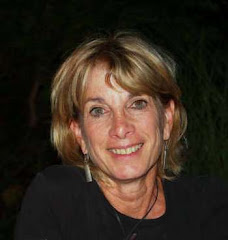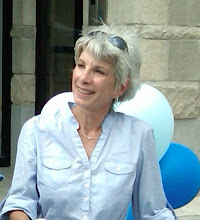 Nevertheless, when I'm in the grocery store, I more often than not pass by the organic produce and opt for what I was raised on: foods grown conventionally. With the growth of farmer's markets over the past decade, however, I've been paying more attention to the place of origin, and try to buy locally grown produce whenever possible.
Nevertheless, when I'm in the grocery store, I more often than not pass by the organic produce and opt for what I was raised on: foods grown conventionally. With the growth of farmer's markets over the past decade, however, I've been paying more attention to the place of origin, and try to buy locally grown produce whenever possible. Last week as I wandered around the Farmer's Market researching a piece for the Larchmont Patch on where to buy the best fruits and vegetables, I realized most of the produce on display was not organic. The dilemma crystallized in my mind, and I realized it was time to give a little more time to the choices I make.
My children buy only organic vegetables, mostly locally grown (it is, of course, a lot easier in Oregon and California) and I applaud them for it. After all, my grandchildren -- four under the age of eight -- have a long way to go, so healthy habits are important.
But my formative years were more than a half-century ago, so part of the reasoning for not always buying organic is my age. If pesticides haven't hurt me yet, I rationalize to myself, surely I'll be okay for the time remaining.
Growing all my own food really isn't an option. Besides the limitations of the Larchmont climate, my garden is post-stamp size. Decisions, decisions.
What do you do?




